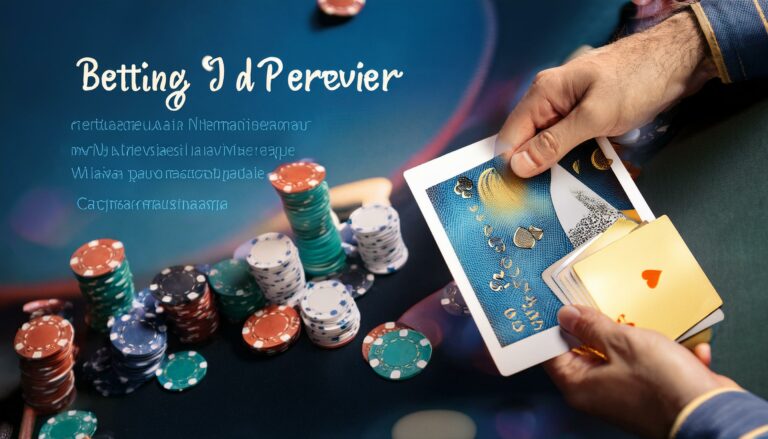Exploring the Connection Between Sports Betting and Sports Psychology
Play99exch, Allpaanel: Understanding the mindset of an individual engaged in sports betting is crucial in predicting their behavior and decision-making processes. A positive mindset often leads to confident and rational choiceswhile a negative mindset can result in impulsive and emotionally driven bets. It is essential to recognize how one’s beliefsattitudesand perceptions can significantly impact the outcome of their betting activities.
Research has shown that individuals with a growth mindset tend to approach betting as a learning opportunityacknowledging both wins and losses as part of the journey. In contrastthose with a fixed mindset may view setbacks as failuresleading to a fear of taking risks and making bold decisions. By cultivating a growth mindset and embracing challengesbettors can adapt more effectively to changing circumstances and enhance their overall betting experience.
Understanding the Psychological Factors in Sports Betting
When it comes to sports bettingit’s essential to recognize the intricate web of psychological factors that influence decision-making. One key aspect is the role of cognitive biaseswhere individuals may exhibit irrational behavior driven by subjective beliefs rather than objective facts. These biases can lead to distorted judgments and impulsive betsultimately impacting the outcome of wagers.
Furthermoreemotional control plays a significant role in sports betting success. The ability to manage one’s emotionsparticularly in the face of wins and lossescan greatly impact decision-making processes. Maintaining a level head and not letting emotions dictate betting choices is crucial in navigating the unpredictable world of sports betting.
The Role of Confidence in Sports Betting
Confidence plays a significant role in sports betting as it directly impacts decision-making processes. When bettors possess high levels of confidence in their choicesthey are more likely to place larger bets and take calculated risks. This self-assurance can lead to better judgment and potentially increased winnings. Converselylow confidence levels may result in hesitancysecond-guessingand ultimatelymissed opportunities for profitable bets.
Moreoverconfidence in sports betting is closely linked to a bettor’s overall mindset and belief in their abilities to analyze information effectively. A confident bettor is more likely to trust their instinctsstrategiesand researchleading to a more assertive approach to placing bets. This sense of self-assurance can also help bettors navigate through losses with resilience and maintain a positive outlookcrucial for long-term success in the unpredictable world of sports betting.
Emotional Control in Relation to Betting Decisions
Emotional control plays a crucial role in making sound betting decisions. When emotions run highparticularly in moments of excitement or frustrationbettors may be more likely to deviate from their initial strategies and make impulsive decisions. This can lead to detrimental outcomes and losses in the long run. By maintaining emotional discipline and staying level-headedbettors can make more rational decisions based on logic and analysis rather than being swayed by temporary emotions.
In the world of sports bettingbeing able to regulate emotions is key to maintaining a balanced approach to wagering. Keeping emotions in check can prevent impulsive betting behavior that is driven by feelings rather than strategic thinking. Developing the ability to detach oneself emotionally from the outcome of a bet can lead to more consistent decision-making and better control over risks and rewards in the betting process.
Analyzing the Impact of Cognitive Biases on Betting Outcomes
Cognitive biases can significantly influence the outcomes of sports betting decisions. These biases are inherent mental shortcuts that can lead individuals to make irrational judgmentsparticularly in high-pressure situations. One common cognitive bias is the anchoring biaswhere individuals rely heavily on the first piece of information they receive when making decisionseven if it’s irrelevant to the current situation.
Another prevalent bias is the confirmation biaswhere individuals seek out information that supports their existing beliefs and ignore conflicting evidence. In sports bettingthis bias can lead to overconfidence in a chosen outcome and neglect of crucial information that suggests otherwise. By being aware of these cognitive biases and actively working to mitigate their impactbettors can make more rational and informed decisionsultimately improving their chances of success in sports betting.
The Connection Between Motivation and Sports Betting
Motivation plays a crucial role in sports bettingas it is the driving force behind an individual’s decision to place bets. Whether the motivation stems from the desire for financial gainthe thrill of competitionor the need for entertainmentit shapes the way bettors approach their wagers. Understanding one’s motivations can provide valuable insights into their betting behavior and help them set realistic goals and expectations.
For many sports bettorsmotivation serves as a catalyst for their engagement with the activity. It can determine the level of commitmentpersistenceand effort they put into their betting strategies. By recognizing what fuels their interest in sports bettingindividuals can tailor their approach to align with their motivationsleading to a more fulfilling and potentially successful betting experience.
• Motivation is the driving force behind an individual’s decision to place bets
• Understanding one’s motivations can provide valuable insights into their betting behavior
• Motivation serves as a catalyst for engagement with sports betting
• Tailoring approach to align with motivations can lead to a more successful betting experience
Managing Stress and Pressure in Sports Betting
Stress and pressure are common companions in the world of sports bettingoften influencing decision-making and potentially leading to negative outcomes. When faced with high stakes and the unpredictability of sports eventsbettors can experience heightened levels of stress that may cloud their judgment. In these momentsit is essential for individuals to maintain a clear mind and avoid making impulsive bets driven by emotions.
Effective stress management techniques can help bettors navigate the emotional rollercoaster that comes with sports betting. Taking breakspracticing mindfulnessand setting realistic goals can all contribute to reducing stress levels and fostering a healthier approach to betting. By acknowledging and addressing the impact of stress and pressure on decision-makingbettors can enhance their overall performance and increase their chances of success in the long run.
The Importance of Discipline in Successful Betting Strategies
Discipline is a vital component of successful betting strategies. By adhering to a structured approach and setting clear boundariesbettors can better manage their decisions and minimize impulsive actions. This involves establishing specific rules for bettingsuch as setting a budgetavoiding chasing lossesand sticking to a predetermined plan.
Consistency in applying discipline is key to long-term success in sports betting. It requires a commitment to follow the established guidelineseven when faced with tempting opportunities or emotional swings. By maintaining disciplinebettors can stay focused on their goalsmake rational decisions based on analysis rather than emotionsand ultimately increase their chances of achieving positive outcomes in their betting endeavors.
Building Resilience to Handle Losses in Sports Betting
Resilience is a crucial trait for sports bettors as losses are inevitable in this unpredictable field. Developing the ability to bounce back from losses and setbacks is key to long-term success in sports betting. Instead of dwelling on past lossesresilient bettors focus on learning from their mistakes and adjusting their strategies accordingly.
One way to build resilience in sports betting is by maintaining a positive mindset and staying composed even during challenging times. Embracing losses as part of the learning process rather than as failures can help bettors stay motivated and persistent in the face of adversity. By cultivating resiliencebettors can navigate the ups and downs of sports betting with a level head and a determined spirit.
Utilizing Visualization Techniques for Sports Betting Success
Visualization techniques can be a powerful tool in sports betting success. By mentally rehearsing positive outcomes and visualizing successful betting decisionsindividuals can create a sense of confidence and belief in their abilities. This mental practice can help bettors stay focusedmotivatedand resilient in the face of challenges or lossesultimately improving their overall performance.
Incorporating visualization into a betting strategy can also help individuals manage stress and pressure more effectively. By envisioning themselves making successful bets and handling tough situations with calmness and claritybettors can train their minds to react in a positive and productive manner. This mental preparation can lead to better decision-makingincreased emotional controland a more disciplined approach to sports betting.
How does mindset influence betting behavior in sports?
Mindset plays a crucial role in sports betting as it can impact decision-makingconfidence levelsemotional controland overall performance.
What are some psychological factors to consider in sports betting?
Psychological factors such as biasesmotivationstresspressureand discipline can all influence the outcomes of sports betting.
Why is confidence important in sports betting?
Confidence can help bettors make informed decisionstrust their instinctsand handle losses more effectively in sports betting.
How can emotional control affect betting decisions?
Emotional control is essential in sports betting as it can help bettors stay rationalavoid impulsive decisionsand manage their emotions effectively.
What role do cognitive biases play in sports betting outcomes?
Cognitive biases can lead to irrational decision-makingoverconfidenceand skewed perceptions of probabilities in sports betting.
How does motivation impact sports betting success?
Motivation can drive bettors to set goalsstay focusedcontinuously improve their strategiesand ultimately achieve success in sports betting.
Why is managing stress and pressure important in sports betting?
Managing stress and pressure can help bettors stay calmfocusedand make better decisions under challenging circumstances in sports betting.
What is the significance of discipline in successful betting strategies?
Discipline is crucial in sports betting as it helps bettors stick to their strategiesavoid chasing lossesand maintain a consistent approach to betting.
How can bettors build resilience to handle losses in sports betting?
Building resilience involves learning from lossesstaying positiveadapting strategiesand bouncing back stronger in sports betting.
How can visualization techniques be utilized for sports betting success?
Visualization techniques can help bettors mentally rehearse winning scenariosstay focusedboost confidenceand improve overall performance in sports betting.







